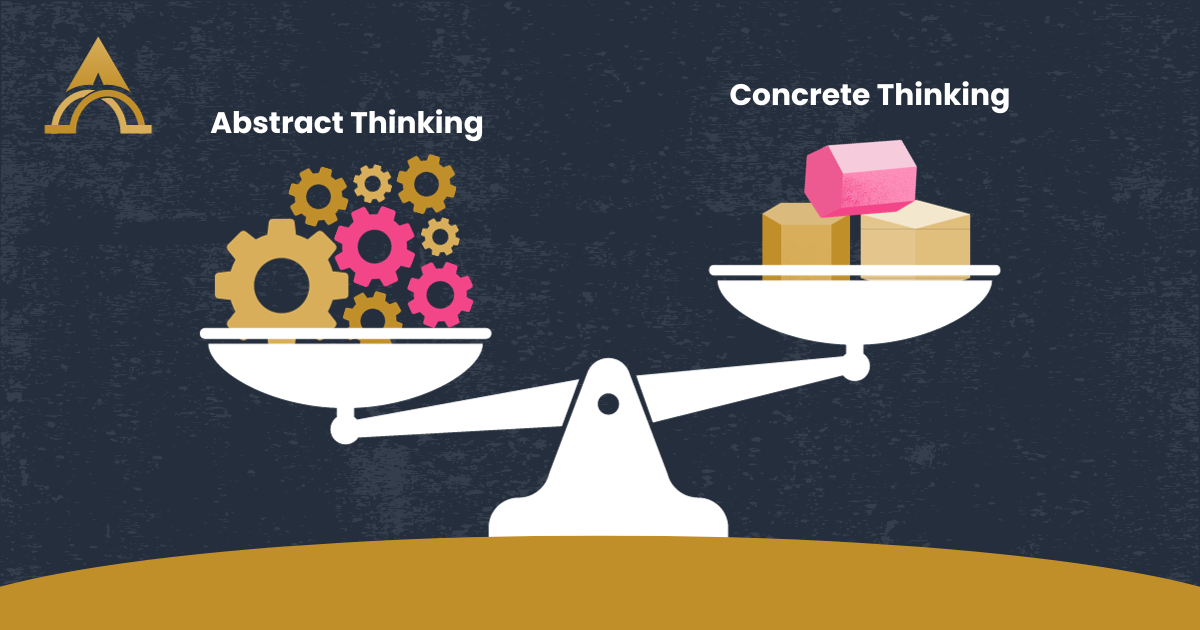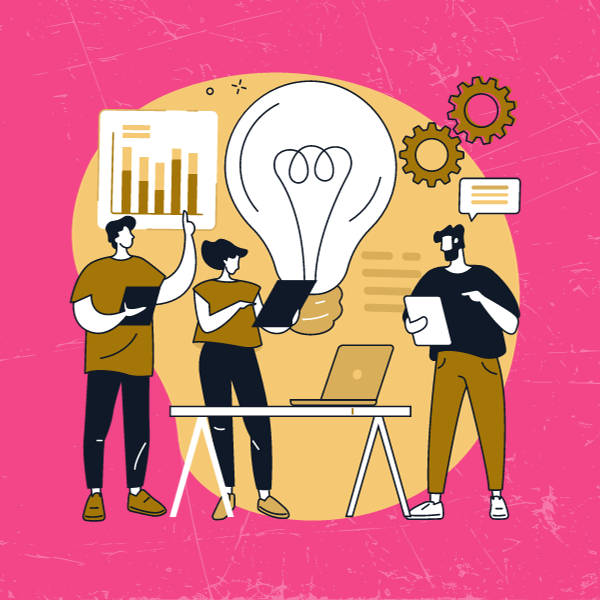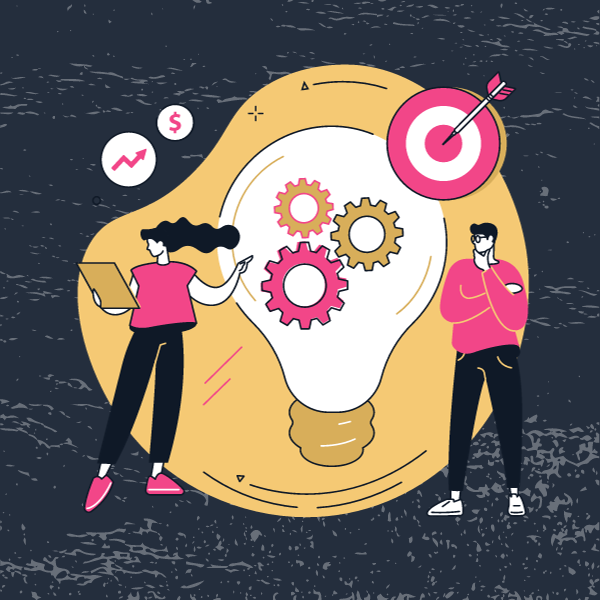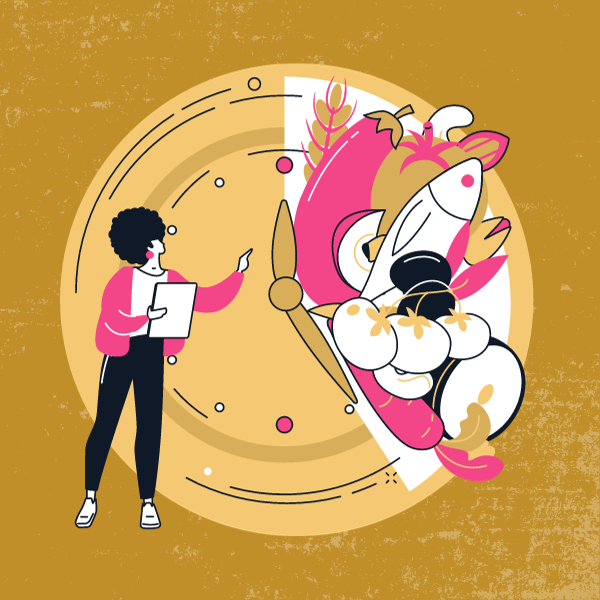
In the ever-evolving landscape of the workforce, success is no longer solely determined by technical skills or expertise in a particular field. Instead, employers increasingly recognize the value of cognitive flexibility – the mental agility that enables individuals to adapt to changing situations, learn from new experiences, and think creatively in diverse contexts.
Take, for instance, the following scene from the movie Apollo 13:
NASA must devise a strategy to return Apollo 13 to Earth safely after the spacecraft undergoes massive damage putting the lives of the three astronauts on board in jeopardy. There is a limited amount of time and material resources to solve the very real problem of having enough oxygen (and too much CO2) for the astronauts onboard. The problem gets worse when they realize the filters they need require square cartridges and the ones they have on board are round. The team of scientists at NASA immediately go to work by dumping duplicates of all of the materials the astronauts have on board so that they can create a solution out of randomness.
Because the scientists at NASA had strong cognitive flexibility, they were able to navigate a high-stress problem. Of course, this is oversimplified for the sake of making a good movie, but the need for this type of leadership is not.
In this blog post, we will explore the concept of cognitive flexibility, also sometimes called cognitive shifting, why it is essential in today’s dynamic professional environment, and how assessing this trait can be a powerful tool in pre-employment tests.

Defining Cognitive Flexibility
Cognitive flexibility refers to the ability of an individual to adapt their thinking and approach when faced with new or unfamiliar situations. It involves the capacity to shift perspectives, adjust to changing circumstances, and embrace novel ideas.
In the workplace, cognitive flexibility often looks like a person who can handle multiple tasks and projects at one time – some big, some small. They can easily bounce between conversations, keeping track of each one separately and contributing value in various contexts. Most high-level professionals have the ability to do this, but not all.
More and more, as leaders seek to get and keep the right people in the right seats, paying attention to this unique ability has growing importance.

Key Components of Cognitive Flexibility
As you look around at your co-workers, peers and direct reports, what can you look for that will help you know their level of cognitive flexibility?
At its core lies adaptability, which involves the capacity to adjust one’s mindset and approach when confronted with new or unfamiliar situations. Do new situations cause an employee stress or are they able to shift their thinking to make room for projects, ideas, and approaches that are outside their comfort zone?
Cognitive flexibility also includes creativity. A flexible mind is inherently creative, allowing individuals to think innovatively and approach problems from diverse perspectives. Are your co-workers, peers, or direct reports able to imagine different-than-usual approaches to solving problems?
Moreover, cognitive flexibility also encompasses open-mindedness, encouraging individuals to be receptive to alternative viewpoints and integrate them into their own thinking. When faced with a brainstorming conversation, are employees able to join in a healthy way, listening and leading with curiosity?
Lastly, it entails learning agility, the ability to swiftly and efficiently absorb new information, acquire new skills, and apply them in varied contexts. Are your team members able to learn from various sources – reading, listening, researching?

Why is Cognitive Flexibility in the Workplace Important?
In today’s fast-paced business environment, change is constant. Organizations that thrive are those whose employees can adapt swiftly to new technologies, market trends, and internal processes. Cognitive flexibility ensures that individuals can navigate these changes seamlessly.
In addition to the growing need for adaptability, employees are also being called on to solve more complex problems with unconventional solutions. Cognitive flexibility allows individuals to approach challenges with an open mind, identifying innovative ways to overcome obstacles and find effective solutions.
In order to keep up with the pace and demand for solutions, collaboration is key. Team members who are able to contribute to collaboration with diverse and interconnected people and teams are essential. Cognitive flexibility fosters open communication, understanding, and cooperation among team members with different perspectives and working styles.
Successful leaders of today have to possess cognitive flexibility. In order to manage change, stay on top of the fast-pace, and keep people engaged, leaders need to be able to adapt, get creative, be open-minded, and continuously learn and grow. It’s no small task.
It’s easy to see that with this level of demand on leaders and employees, hiring the right people becomes a much more significant task with a higher level of importance.

Assessing Cognitive Flexibility in Pre-Employment Tests
Recognizing the significance of cognitive flexibility, employers are increasingly incorporating assessments to evaluate the ability of a candidate to problem solve. Will they just follow the script? Or, are they pulling in various perspectives and information to make an informed decision that is unique to the situation they are facing.
Here are some ways in which cognitive flexibility can be assessed:
Scenario-based Questions
During interviews, present candidates with hypothetical scenarios that require adaptability and creative problem-solving. Evaluate their responses and the thought processes behind their decisions.
Simulation Exercises
Use simulated work tasks or projects that mirror the challenges the candidate may face in the actual role. Assess how well they adapt to changing requirements and demonstrate creative thinking.
Personality Assessments
Certain personality assessments, such as the 16PF, include components related to openness and adaptability, providing insights into an individual’s cognitive flexibility.
Behavioral Interviews
Past behavior is often indicative of future performance. Ask candidates about specific instances where they demonstrated cognitive flexibility in their previous roles, emphasizing adaptability to change and problem-solving abilities.

Building and Growing Cognitive Flexibility
Like most skills related to emotional intelligence, cognitive flexibility can be developed and improved upon. Open Colleges lays out seven ways to build and grow your cognitive flexibility muscles:
- Alter your everyday routine. When you push your brain to think differently, you develop new neural pathways.
- Seek out new experiences. In addition to expanding your horizons, new experiences boost dopamine levels which increases learning and memory.
- Practice thinking creatively. By using divergent thinking patterns, we can retrain our brains to be more creative.
- Don’t always take the easy way. Sure you can use the app or ask your expert friend, but you’ll learn more and create new connections when you do the work yourself.
- Go out of your way to meet new people. When you have access to more perspectives, ideas, and types of people, you become more flexible in your thinking.
- Transfer your learning. When you combine knowledge and experience from various contexts, you become much more creative and innovative in your approach to learning and solving problems.
- Challenge your morals. Get curious about other cultural values and beliefs. Even if you don’t agree, you will be a much stronger thinker when you are able to understand other’s viewpoints.
In conclusion, cognitive flexibility is a fundamental skill that sets successful professionals apart in the contemporary workplace. As organizations continue to navigate a rapidly changing landscape, individuals with strong cognitive flexibility will be better equipped to thrive and contribute meaningfully to their teams and the overall success of the organization. Incorporating assessments of cognitive flexibility into pre-employment fit tests is a strategic approach for identifying candidates who possess this crucial skill, ensuring a workforce that is agile, innovative, and prepared for the challenges of the future.
